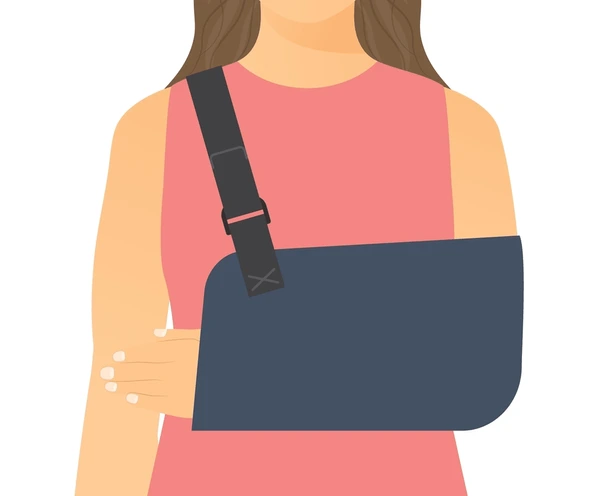A frozen shoulder is one that has lost its normal range of motion making routine activities such as combing your hair, putting on your clothes, or sleeping in certain positions very difficult.Resting the affected shoulder too long could make matters worse! Adhesions start to develop within the shoulder capsule making movement even more difficult. In fact, adhesive capsulitis is another name for frozen shoulder.So, will a frozen shoulder heal itself? The answer varies depending on several factors such as your age, presence of comorbidities, and severity of the condition. Most of the time it will eventually resolve, but in some cases people do not regain full range of motion in the shoulder with conservative treatment. The average time required to recover from a frozen shoulder is about 1 to 2 years.Treating a frozen shoulder by nonsurgical modalities can speed up the healing process and may be all that is required in 90% of the cases.Some of the nonsurgical treatment options include:
- Pain Medication: Nonsteroidal anti-inflammatory medicines such as aspirin, naproxen, and ibuprofen can decrease swelling and pain in the shoulder allowing pain-free movement.
- Physical Therapy: Your doctor or a physical therapist can provide you with a program of exercises specifically designed to stretch the shoulder capsule and improve range of motion. Most of the time these exercises can be done at home. The key is consistency with daily stretching.
- Steroid Injections: The administration of steroid (cortisone) injections into a frozen shoulder can help reduce inflammation and promote recovery of range of motion. The key is the location. The injection shoulder be into the joint (glenohumeral) as opposed to above the rotator cuff (subacromial) because the joint is the location of the problem.
In some cases is surgical treatment required for treatment of a frozen shoulder and it is only recommended if conservative treatments fail to relieve symptoms. The involves:
- Arthroscopic release of the shoulder capsule: Minimally invasive arthroscopic instruments are inserted through tiny keyhole skin incisions to release or free up the constricted shoulder capsule. This is an outpatient procedure which takes about 30 mins to perform.Following this procedure, physical therapy is used to maintain range of motion.
If shoulder pain and stiffness is limiting on your active lifestyle, visit Dr. Denard for an in-depth evaluation and treatment recommendation.Dr. Patrick Denard has been voted one of the top 20 Shoulder Surgeons in North America and is the most widely published shoulder specialist in Oregon. Dr. Denard is committed to providing the highest level of Orthopedic care to his patients. Dr. Denard has advanced arthroscopy training and is able to perform the vast majority of shoulder procedures in a minimally invasive fashion, including all types of rotator cuff repairs and instability repair. These techniques allow him to repair tears that some consider “irreparable.” Providing every patient with advanced medicine and compassionate care each and every time.
Similar posts



